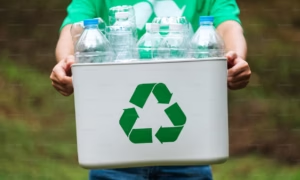Recycling has become indispensable to our efforts to protect the environment and preserve natural resources. However, recycling involves more than simply tossing materials in bins – special equipment is essential in ensuring efficient recycling processes for various materials.
Waste management equipment consists of machinery and tools designed to transform waste into valuable resources, from sorting to shredding. Recycling machines ensure maximum resource recovery while mitigating environmental impact by automating and streamlining this process.
Recycling plays an integral role in sustainable waste management. Together we will explore this field, its various forms, and functions while emphasizing its role in creating an eco-friendlier future.
Types of Waste Management Equipment
1. Sorting Equipment
Sorting equipment is crucial to accurately sorting materials according to composition and properties, using sophisticated technologies such as optical sorters and magnetic separators to efficiently recycle plastics, metals, glass, paper, and more.
2. Shredding Equipment
Shredders are machines designed to reduce the size and volume of various materials. They can reduce bulky objects like cardboard boxes, plastic bottles, or aluminum cans into more manageable chunks for transportation and storage or allow further processing into new products.
3. Compacting Equipment
Compressors and balers make recycling materials easier to handle and transport by compacting their volume for storage or transportation purposes.
4. Crushing Equipment
Crushing equipment reduces large objects or materials into smaller pieces for recycling, simplifying disposal while increasing separation, sorting, and recycling operations. Crushers specialize in material separation, including concrete, asphalt, demolition debris, and any other waste material that needs sorting or separation procedures.
Recycling Equipment Benefits
1. Recycling Enhances Efficiency
Waste management equipment streamlines various recycling processes to increase their efficiencies and performance, improving performance. These machines can sort, shred, compact, crush and wash materials for increased outputs and better resource recovery rates while decreasing manual labor and time.
2. Cost Savings
Businesses investing in recycling can enjoy long-term cost savings through automated processes that replace manual labor with automatic methods, thus cutting labor costs. Furthermore, effective recycling maximizes resource utilization while minimizing waste disposal fees – recovered materials may then be sold or reused to generate extra revenues for an organization.
3. Environmental Conservation
Recycling plays an integral part in environmental sustainability. Recycling machinery helps alleviate landfill strain and improve aesthetics by converting waste from landfills into valuable commodities.
4. Improved Product Quality
Eco-friendly processing equipment such as washing machines can significantly increase the product quality of recycled materials by removing impurities such as dirt, labels, and adhesives to meet the required standards for reused material production – leading to high-quality recycled products suitable for various applications and opening up market opportunities.
Overall, recycling machinery is integral in optimizing the efficiency and effectiveness of recycling processes. Businesses investing in such machinery can expect improved productivity, cost savings, and environmental sustainability benefits, as well as conserve natural resources by reducing landfill waste volumes while mitigating pollution risks.
General Kinematics offers an expansive selection of recycling equipment with detailed descriptions of functions and benefits – an invaluable tool in creating a more sustainable future by increasing resource recovery rates and developing circular economies.



































